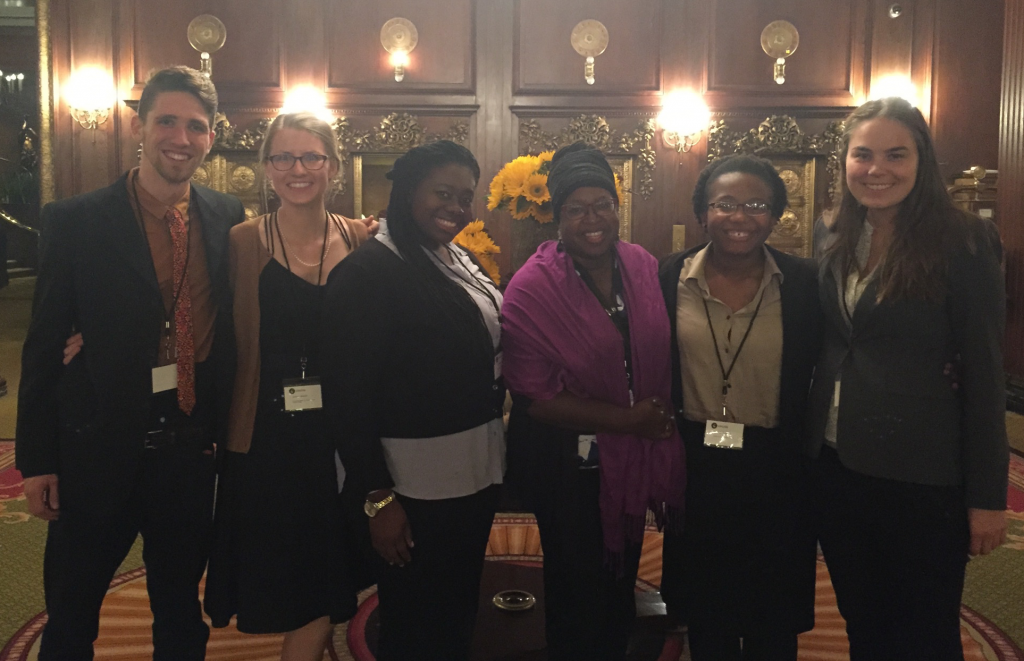Dialogue in Action: Gordon Student Scholars and the Civilitas Group
A group of A. J. Gordon Scholars and Clarendon Scholars recently had an opportunity to engage with Christian leaders from all over the country at a gathering in nearby Boston. One of the participants, India Boland ’17 (A. J. Gordon Scholar and Pike Honors student) recounts the experience.
The shots fired on June 17 in the Emanuel African Methodist Episcopal Church in Charleston, South Carolina, reverberated across the country and shed light on an issue the Christian church as a whole could no longer afford to avoid. A known white-supremacist gunman entered a prayer service and shot innocent Christians, murdering nine and severely injuring a tenth. The Emanuel African Methodist Episcopal Church is one of the oldest black churches in the country, and has long been the source of civil rights movements. This particularly targeted crime is horrifying in every aspect, and has in many cases served as undeniable proof that violent racism is still thriving in our own communities.
Many pastors across the country realized it is part of their calling to educate themselves on how to engage, defend and advocate for minority groups in their congregations. “What if they could say, ‘After Charleston, we owned the pain of our collective church family?’ What if they could say, ‘After Charleston, we did everything we could to ensure something like this never happens again?’” asks the After Charleston website that seeks to unite Christians in the aftermath of the Charleston tragedy. Rev. Doug Birdsall, former President of the American Bible Society and the Lausanne Movement, was particularly disturbed by the events, and was haunted by the question: If black men and women aren’t safe in their own churches, where are they safe?
In an environment of helplessness, confusion and anger, he sought to bring together pastors and academics from across all possible lines of division. On June 25, 2015, an incredible gathering of 24 Christian leaders of diverse backgrounds and ethnicities converged to initiate dialogue, healing and restoration. They spoke, they preached, they cried, they were vulnerable. Anger was expressed. The beginning of healing was found. Many walked in as strangers, and all walked away as friends. From this meeting, the Civilitas Group was born.

A few of the Civilitas attendees: Jack Ricci ’17, Hannah Wardell ’17, Chrystiana Matthews ’17, Paulea Mooney-McCoy (Director of Multicultural Initiatives), Sohenga Depestre ’17, and Hannah Schundler (Assistant Director, A. J. Gordon Scholars Program)
The Civilitas Group was reunited in October in Boston, and Gordon’s own A. J. Gordon Scholars and Clarendon Scholars were invited to attend and participate as young leaders in life-giving conversation and discussion over three days. Many members of the Civilitas Board of Advisors—including Richard Mouw of Fuller Theological Seminary, Katherine Alsdorf of the Center for Faith & Work of New York City’s Redeemer Presbyterian Church, Bethany Hoang of International Justice Mission, and Gideon Strauss of the Institute for Christian Studies—gathered with urban leaders and others from across the United States to dialogue, reflect and strategize about how Christians can work together for the common good. Their deep love and respect for each other was clear.
Over three days, we were able to see something incredible, something that many have come to believe is impossible in the modern, diverse Christian community: brothers and sisters across age, race, and theological belief embracing one another in love and vulnerability around extremely contentious issues. We bore witness to civil, productive dialogue in action that has led to changes for the better in many congregations and communities.
 The Bell
The Bell